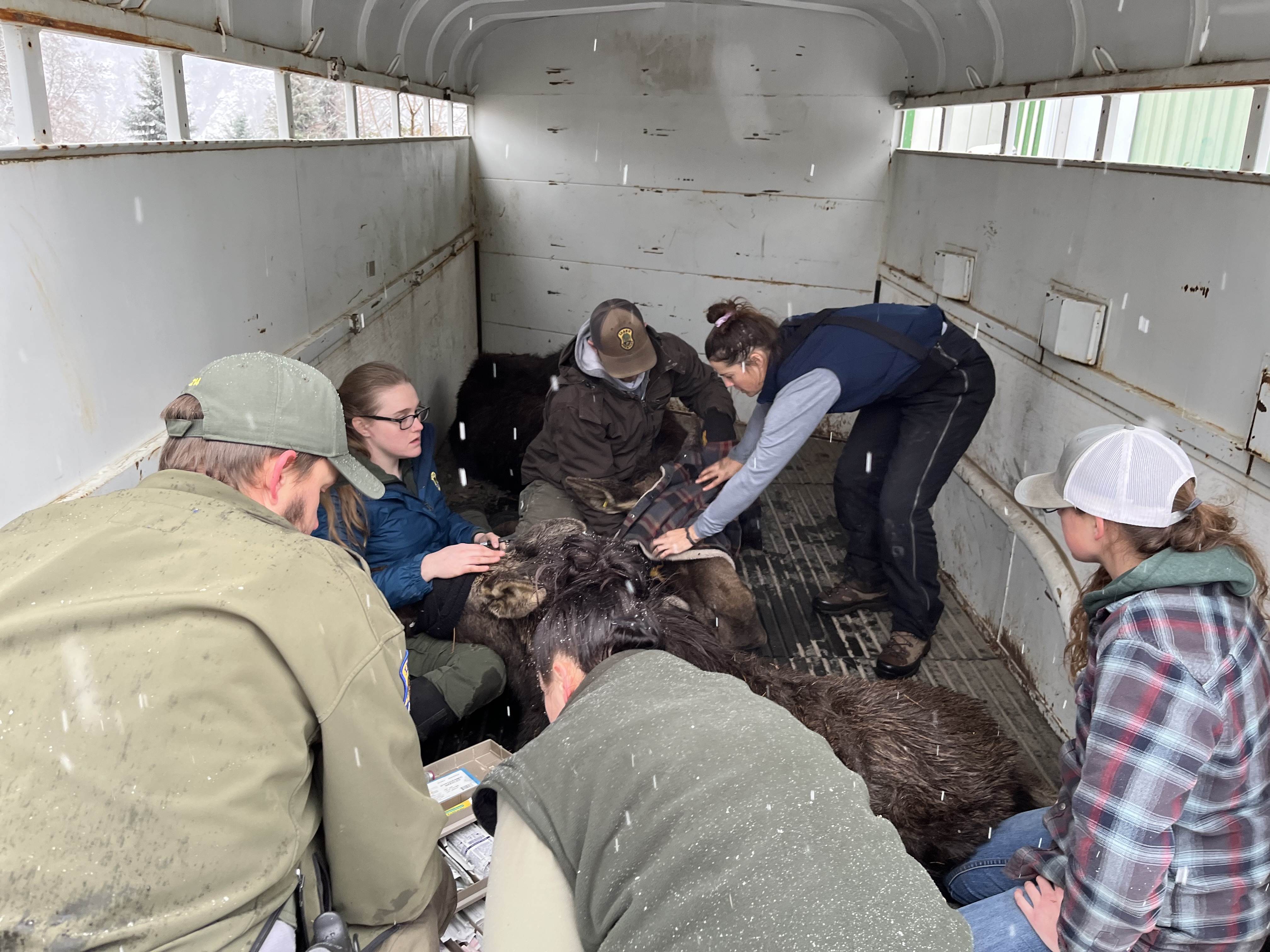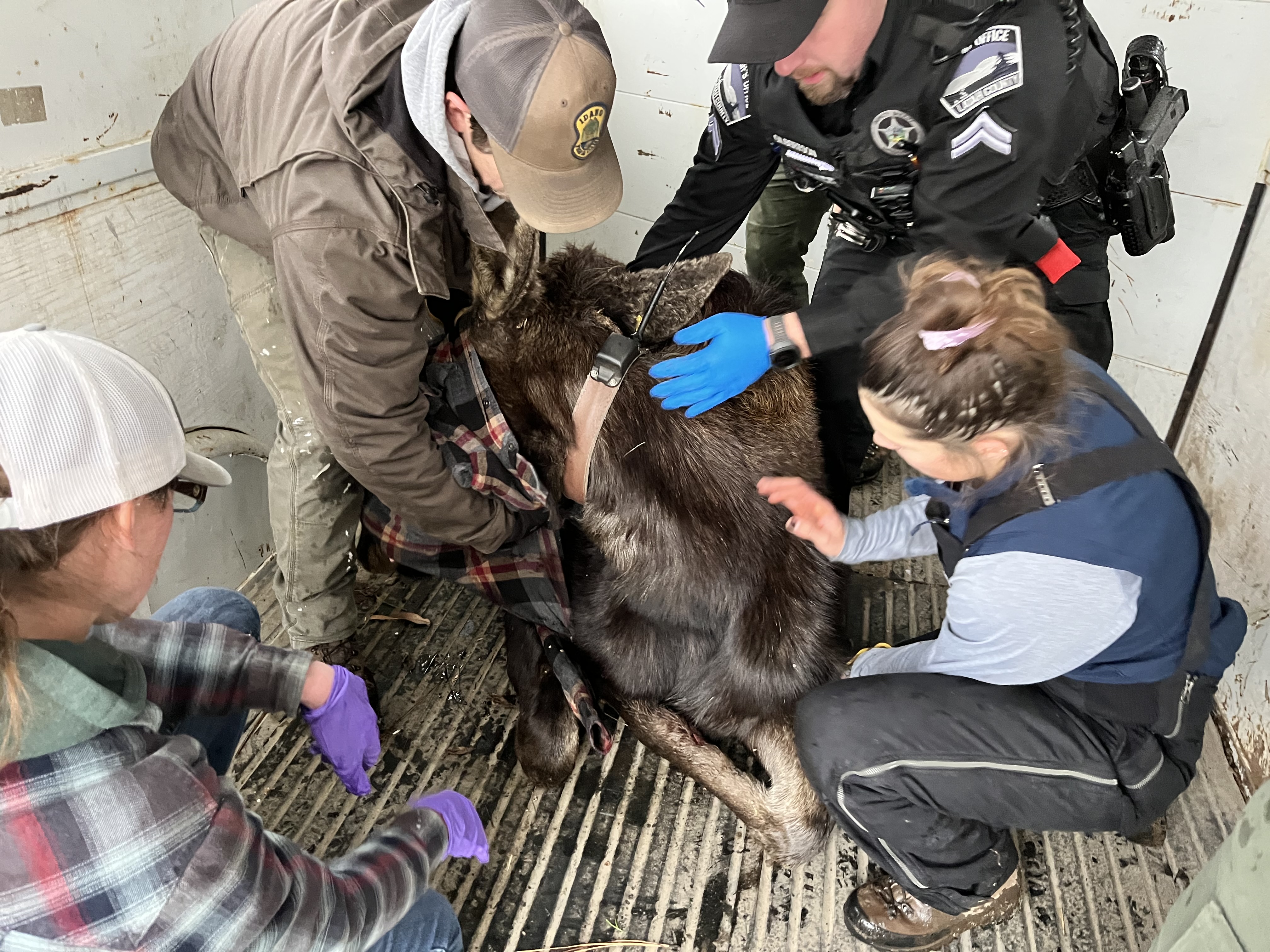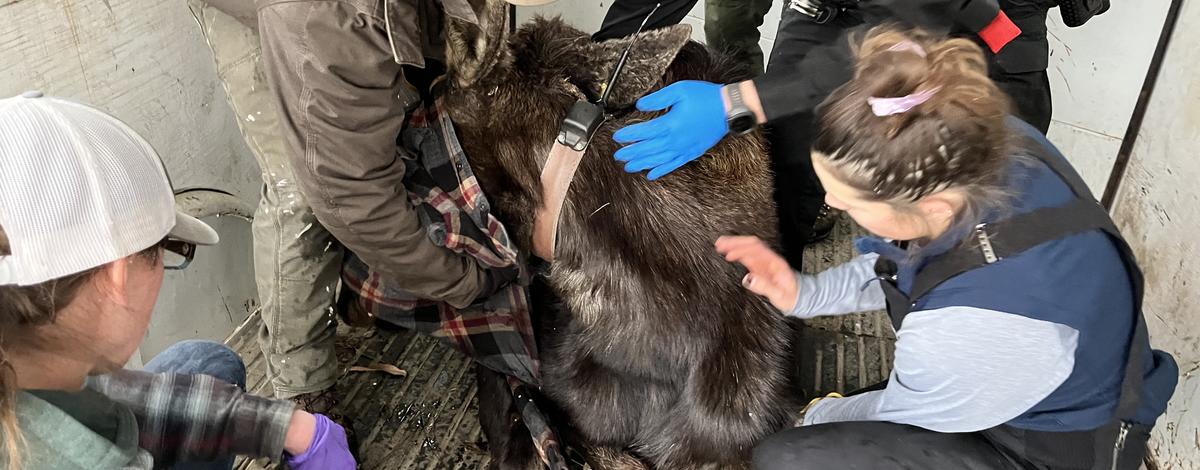During the winter months, it’s not uncommon for moose to roam through towns as they move to lower elevations to avoid deep winter snow, take advantage of milder weather and gorge on tasty snacks in the form of expensive landscaping, fruit trees or agricultural feed.
Idaho Fish and Game received reports of a cow and calf moose in the town of Kendrick about 20 miles southeast of Moscow. Conservation officers kept in contact with the city of Kendrick to monitor the behavior and the general location of these moose in hopes that they would choose to leave town on their own accord.
Fish and Game handles occurrences of moose in town on a case-by-case basis, but it’s always preferred that a moose moves out of town, or a problem area, on their own. However, a moose that acts aggressively toward people may have to be relocated or euthanized to protect public safety.
Moose, like all other big game animals, are wild and highly unpredictable. Although most wildlife species seem to be friendly and non-threatening, their behavior can change in an instant if they feel threatened, or if they do not have adequate space to move freely. It is best to keep your distance from any wild creature, especially moose.
Ears being lowered or flattened to the head is a sign of agitation and aggression in moose and nearly all other wild animals. If you encounter a wild animal and observe this behavior, be aware and remove yourself from the situation as soon as possible.
Relocation is not always an option because moving a moose to new habitat during winter puts the animal at high risk of stress, malnutrition and being threatened by predation. In addition, relocation requires the use of powerful drugs to sedate the animal, which can pose significant risk to both the animal and people. In some cases it is not safe to drug an animal that may, for example, run into traffic after being darted with sedatives.
In the case of the Kendrick moose, after showing some signs of aggression to trail walkers, it was decided that these animals were not interested in moving on their own.
"When it comes to human-wildlife interaction, public safety is the first priority, says Clearwater Region supervisor, JJ Teare." On Dec. 16, Idaho Fish and Game wildlife and enforcement staff worked together to safely dart the animals, and relocate them to a new area.
For more information, contact Idaho Fish and Game at (208) 799-5010.



